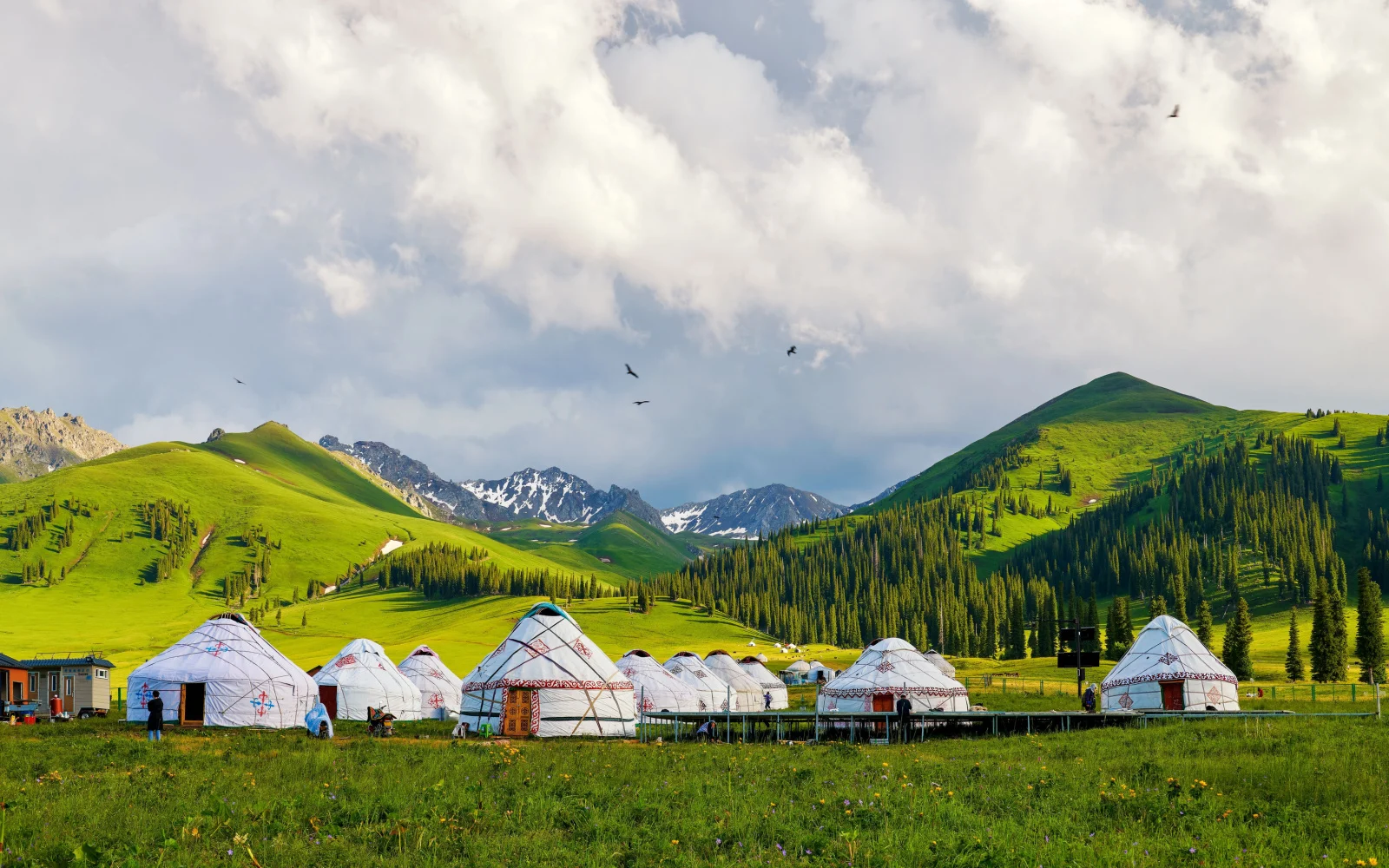Is Mongolia safe to visit?
Yes, Mongolia is safe for travelers, with main concerns being petty crime in cities and extreme weather in rural areas. Visitors should prepare for Mongolia’s harsh climate, ensure tour operators are reputable, and stay informed about the rare but potentially intense protests in Ulaanbaatar.
The country of Mongolia is a great place to visit if you want to see an off-the-beaten path destination, one that is still untouched by tourism and mass culture. Most of Mongolia is covered by the steppe, where people still live nomadic lives.
One of the best things to do in the country is to join a host family and see the traditional way of life. Visiting a traditional festival such as Naadam is also a great way to see this unique culture.
See a more modern side of the country in Ulaanbaatar, the capital and only major city. Mongolia is truly a travel destination like no other, but a destination that also requires using caution. Learn why below.
Is Mongolia Safe to Visit?
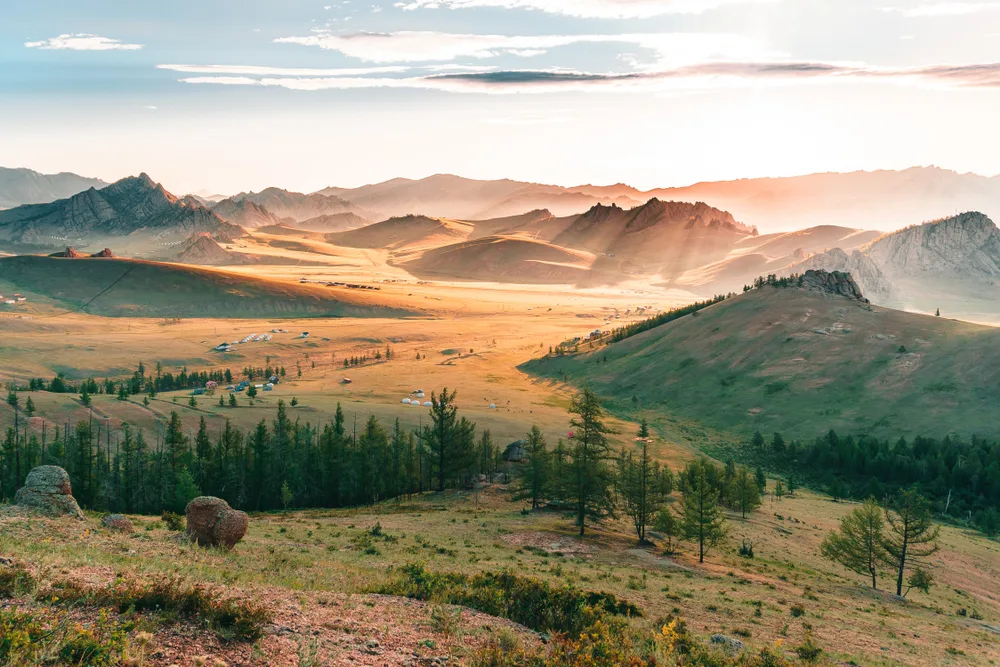
Tobias Gaiser/Shutterstock
Yes and no. Mongolia is safe to visit, but like anywhere, you will have to take some precautions. Especially if you are spending time in nature, you will have to be careful about animals and wild weather. Most countries agree in their assessment that Mongolia is a safe place to visit.
The United States places the country under a Level One travel advisory. This warning is echoed by other countries such as Canada. If there are dangers mentioned, they tend to be minor.
Most incidents affecting tourists are non-violent crimes or other situations that are more inconvenient than they are dangerous. You should watch out for:
- Bag snatching
- Pickpocketing
- Scams
- Robbery
- Assault
Outside of the cities, you aren’t in danger of crime, but you are more vulnerable to Mongolia’s wild nature. Mongolia’s steppe continental climate means that it has four seasons, but all in extremes. Winters are bitterly cold and long, lasting from October to March.
Blizzards, snowstorms, and ice are very common. Avoid wandering around outside during a storm as it’s easy to get lost. Meanwhile, summers are very hot and dry, and sometimes have dust storms.
Make sure that you prepare accordingly for the weather to avoid injury or illness. Popular activities when visiting Mongolia include staying with nomads to experience authentic steppe life.
Most people have positive experiences staying with hospitable locals. However, prepare yourself as staying on the steppe obviously won’t have the same luxury or amenities you’re accustomed to at home, including indoor bathrooms.
When booking any adventure tours or homestays, do your research on the tour company. Make sure that it has a history providing the service it claims to provide and that it has good reviews. This is particularly important for riskier activities as some companies don’t follow safety standards.
A final thing to keep an eye on, especially while in the capital Ulaanbaatar, is the risk of protests. Demonstrations in Mongolia aren’t that common, but they can become intense when they happen.
In December 2022, protesters were so angry over a corruption scandal they tried to storm government buildings. If you see a protest forming, stay away from the area just in case things turn violent.
Crime in Mongolia
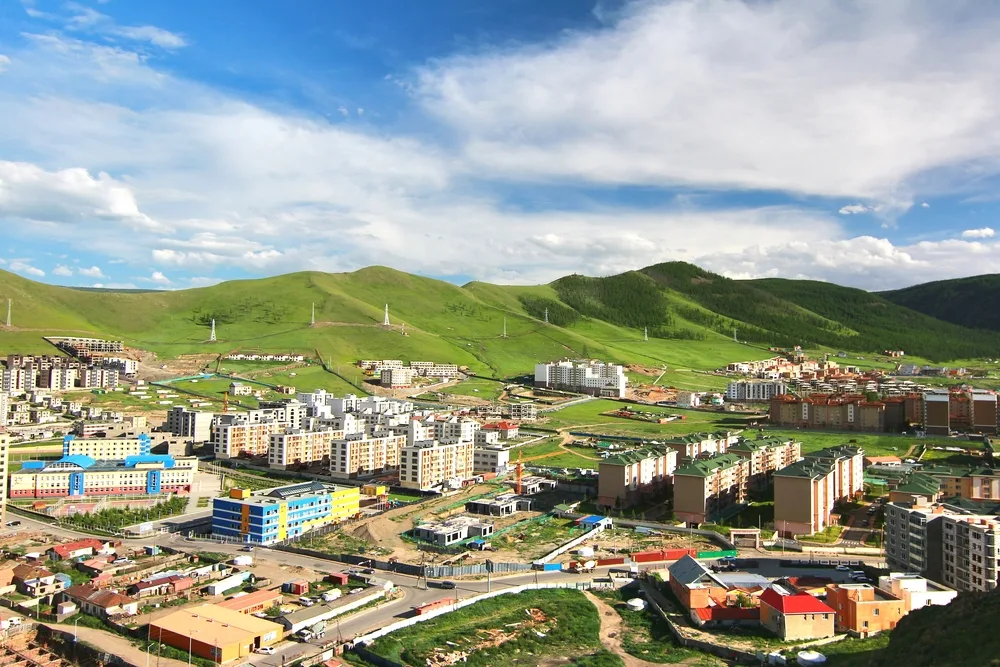
toiletroom/Shutterstock
Crime does happen in Mongolia, especially in cities where the population is denser. There have even been violent incidents affecting tourists in the past, although they are thankfully rare.
While English-language crime statistics are not easy to find from official sources, those that we can find paint a picture of a country where crime is present, but not overwhelming.
According to the World Bank, Mongolia has a homicide rate of about 6 incidents per 100,000 people. Due to the country’s low population density, that means that every homicide incident is amplified in the crime rate more than in more populous countries.
Public perception is that Mongolia has a moderate crime rate, scoring a 56.86% on the Numbeo crime index. People are most concerned about muggings, robberies, assault, and insults. They also have high concerns about corruption, which is backed up by the Organized Crime Index’s evaluation of the high levels of corruption in the country’s governing bodies.
There have been concerns about rising crime in the past, and several high-profile incidents against foreigners were reported. However, the likelihood of something happening to you is low, and gets lower as you leave the capital.
Petty Theft
The most likely crime that could affect you in Mongolia is petty theft. This is widespread in many global cities and targets locals as well as tourists. The UK government warns about the risk of pickpocketing in its travel advisory for Mongolia, as do several other countries.
The risk of this crime is primarily concentrated in the capital Ulaanbaatar, although it can happen in other cities. Thieves tend to operate around popular tourist destinations, such as squares, markets, and the State Department Store.
The rate of petty theft also increases around popular festivals such as Naadam and Mongolian Lunar Year, when crowds provide better cover for theft.
Make sure that when you are in crowded areas, your valuables are secure. Keep your phone, ID, and wallet in a zipped pocket of your bag or somewhere else safe. Don’t leave important items unattended or somewhere where they can be grabbed without your notice.
Thieves often operate in groups, sometimes posing as beggars. Keep a firm grasp on your belongings when you get swarmed by a group. Don’t fight back or provoke pickpockets as they often react with violence.
Assault
Occasionally violent incidents, such as assault, happen. There have been situations where foreigners were targeted in Ulaanbaatar. The Australian government warns about periodic assault.
Some nationalist groups attack interracial couples because they see foreign men as “stealing” local women. There have also been reports of increasing attacks on foreigners, especially members of other Asian ethnicities that Mongolian nationalists see as rivals.
Asian-Americans or other diaspora Asians should be cautious if they notice they are being followed. Many of these assaults are random and difficult to prevent.
Some assaults occur after robberies. Avoid taking unmarked taxis as they are some of the most common robbery sites. If you are robbed, don’t fight back as criminals have assaulted their victims before.
Avoiding Bad Areas
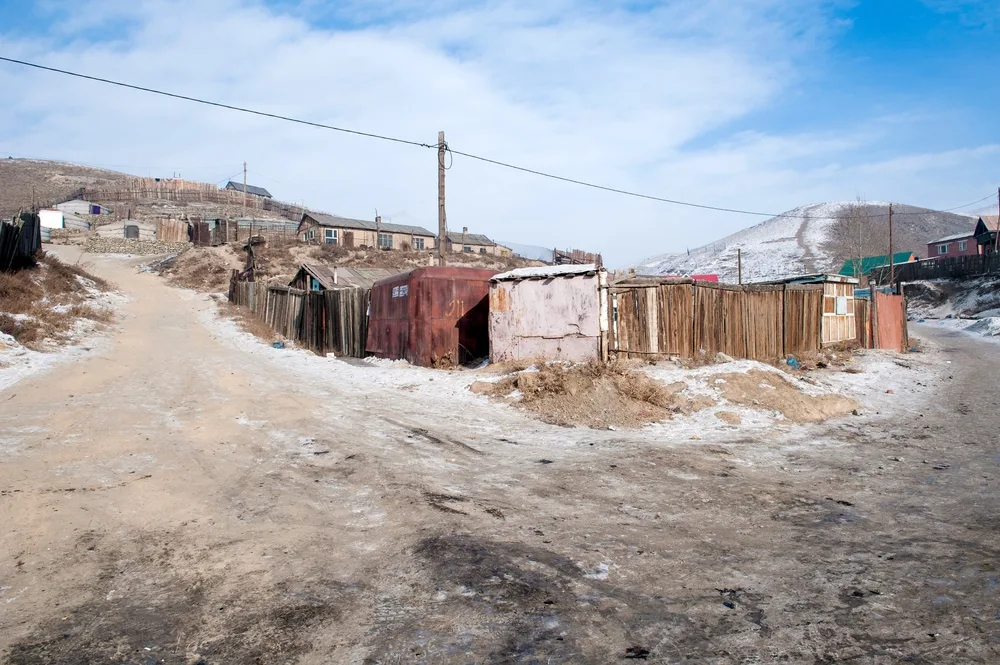
Frank Wagner/Shutterstock
Most crime in Mongolia occurs in the capital. Places in the capital where tourists tend to congregate also attract the most criminals. You can’t avoid these places (nor should you), but you should make sure to be alert.
Be careful at:
- Chinggis Khan International Airport
- The State Department Store
- The Circus
- Central Post Office
- Gandan Monastery
- Naran Tuul Covered Market
You also want to avoid the ger districts, which are tent neighborhoods that often lack formal infrastructure. Late at night, avoid the party areas near Sansar district as the late-night drunks can get rowdy.
Things to Consider
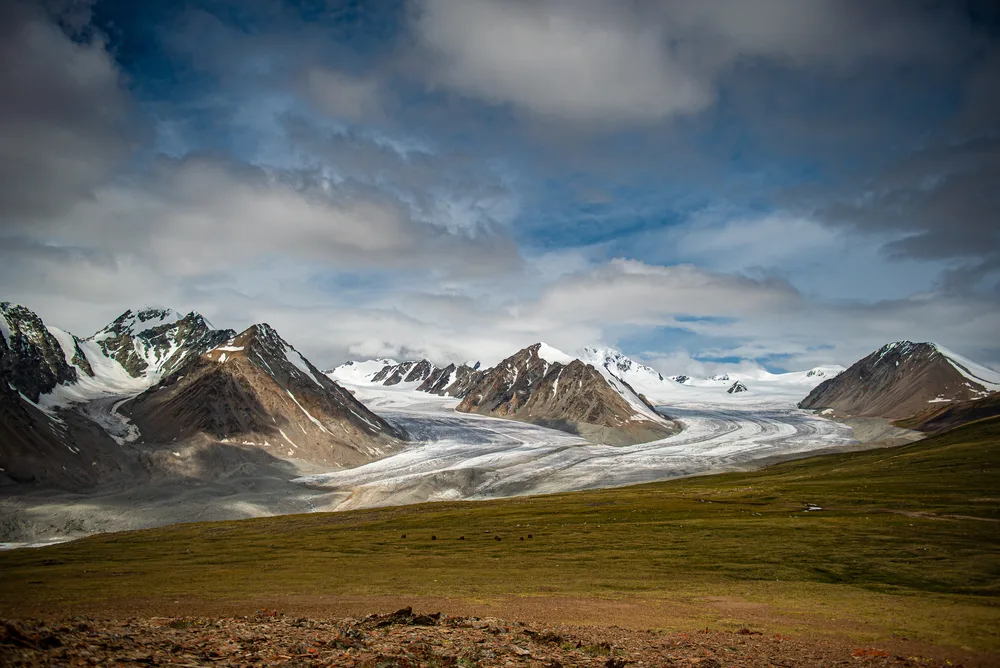
nurmukhamed battur/Shutterstock
Here are some additional safety tips for visiting Mongolia:
- Get good travel health insurance. Health services in Mongolia are not the best and you may need to be evacuated for good medical care. Make sure your insurance covers it.
- Avoid Ulaanbaatar in the winter. The air pollution makes the city unbearable and can cause serious health issues for people with respiratory conditions.
- Be careful when riding horses. Horseback tours are common activities in Mongolia, but horseback accidents can be serious. Avoid it if you have no experience.
- Book through travel companies for more remote excursions. While traveling on your own gives you more freedom, you want the support from a tour company when navigating logistics in an unfamiliar country, especially one where tourist infrastructure is still rudimentary.
Frequently Asked Questions
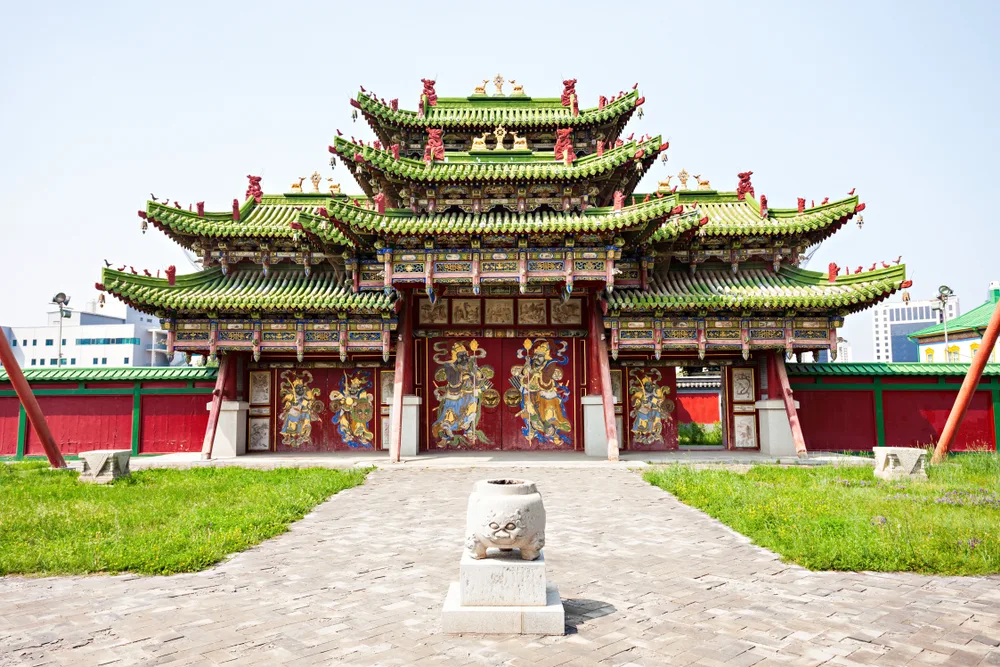
saiko3p/Shutterstock
These other common questions can help with planning a trip to Mongolia:
Is Mongolia good for tourists?
Mongolia is good for tourists that don’t mind a bit of rockiness. The country is beautiful but doesn’t have the creature comforts many tourists may expect from a vacation.
Are Mongolians friendly to tourists?
In general Mongolians are very friendly to tourists. However, there are very small groups of nationalists that attack foreigners.
How safe is travel in Mongolia?
Travel in Mongolia is generally safe. There are some criminal incidents affecting tourists in Ulaanbaatar, and the weather can be a danger everywhere in the country.
Is it safe to walk around Ulaanbaatar?
Most parts of Ulaanbaatar are safe to walk around, but make sure your valuables are in a safe place. The city has some troubles with pickpockets.
Is Mongolia safe for solo travel?
Mongolia is safe for solo travel. Criminal incidents targeting solo travelers are rare, although women are sometimes harassed on the street. However, for trips outside of the capital, it is safer to book through a tour company than do it alone, just because that gives you more security when it comes to logistical challenges.
So, Is Mongolia Safe to Visit?
Mongolia is safe to visit and will certainly be a memorable trip! You should keep in mind that the country has some problems with crime. You don’t want to leave your wallet in your back pocket or hop into unfamiliar taxis and hope for the best.
Outside of the capital, the weather and harsh steppe conditions will be your main problems. Make sure that you have good travel insurance and are prepared for rougher conditions than you may be used to.



